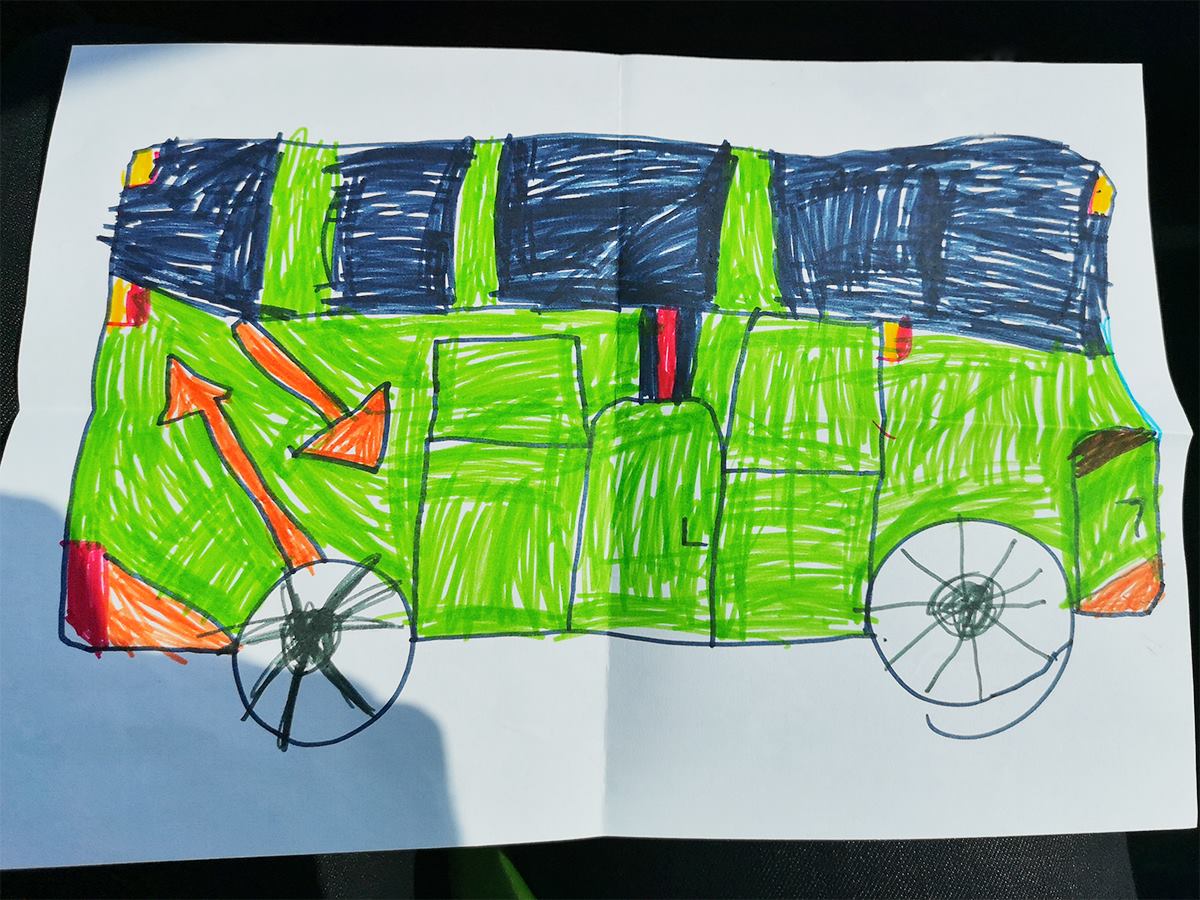Drawing not by author but from the great wide internet.
Eco mobility and a more conscious approach to traveling have been a little bit of trend this past summer. Starting from the fairy godmother of all the environmentalists: Greta Thunberg, deciding to not travel by plane because of the environmental impact of the aviation industry. Well, kudos to Greta and all the people who decide to travel by bus, train, boat or whatever mean of transportation that lets them cut their personal carbon footprint.
Initially, I was also stirred in my environmentalist conscience when I first started my bus journeys on the route Italy-Netherlands, which is just the new route 66 for sad Italian expats. There are a number of coach companies that offer routes all throughout Europe, you can basically reach any place in the continent if you just spend some time planning trade -offs and infinite combinations between connections and your desire to minimize the hours spent on a bus. Trying to avoid a 5 hour wait in some forgotten parking lot in rural Germany while also spending the least amount of money possible is really a test for your organization skills.
After a few journeys, I can say that the environmental aspects have become totally secondary. Personally, I have come to enjoy the long hours spent on the bus: they take me back to a dimension of traveling that the low Ryanair fares had erased. First of all, I gain time, a commodity ever so rare for our generation. It’s mostly inefficient time, I listen to podcasts and music and I have never laid a finger on my laptop to work while travelling. But most of all, I think, maybe overthink.
Trying to avoid a 5 hour wait in some forgotten parking lot in rural Germany is really a test for your organization skills.
I usually go back home twice a year, for Christmas and the summer holidays, and during the journey I can take my time to really appreciate the divide between my two worlds. It gives me time to mull over my thoughts and try to make sense of my condition. My motivations to move from my country, ambitions or lack thereof, the despair of a whole generation. The everyday preoccupations. I always take some time to try to make sense of my position: “cervello in fuga” (fleeing brain direct translation, human capital flight technically) as the media calls us in Italy. People with higher education moving to other countries, to pursue a career in line with their studies, to be paid a living wage, to have some recognition of their efforts and sacrifices. This would be a normal and even desirable outcome within the free movement of people granted by the European Union. The scale and unilateralism of it have made the demographic phenomenon a source of worry. I don’t think any of us does it light-heartedly, and so I need to take my time and wrap my head around this stuff. A long journey is a good moment to do it. I acknowledge this condition along with the change of scenery as I leave my home in flat and grey landscape of north-eastern Italy, cross the Alps, span through Germany and arrive to my other home in a flat, albeit less grey, landscape.
It’s almost a pre-9/11 world where constant surveillance is not enforced
Another feature that I have come to appreciate in the pan-European bus network, is the sensitive difference in the average bus traveler compared to the low cost airlines passengers. You can find the Erasmus generation, going from place to place to visit friends, hippy backpackers, the occasional expat, but also a lot of migrants, maybe some of them trying their luck crossing the borders – on buses there are thankfully no security checks, it’s almost a pre-9/11 world where constant surveillance is not enforced. On specific bus companies, you might find mostly middle-aged ladies from Eastern-Europe, seasonal workers and caretakers going back and forth between Italy and their families. All of these people are not part of my daily life, not privy to our privileged Wageningen bubble.
I like these buses also because the stops that they make are often those stations that you’re told to avoid: where you don’t want find yourself alone at night, places of otherness, a collector for varied humanity, lingering and loitering (Brussels North, close to the red light neighbourhood and shadowed by general sketchy ambiance); semi-abandoned places in the middle of nowhere (this was Gent last year, the stop was in the middle of a soon to be constructed parking lot). It is important to know and inhabit these places of otherness, places where you are least likely to do an Instagram story.
So, if any of this intrigued you I invite you to abandon that low cost airline and take the long, not so comfortable bus. Make time for contemplation and introspection, exchange a few words with your travel companions, see some scenery, forgotten places and maybe some eccentric characters.
But beware, here are some real basic tips to make your trip more fun:
- Don’t rely way too much on the wifi on the bus (download those spotify playlists and podcasts in advance)
- Plan some snacks and drinks depending on length of journey and needs. My snack of choice when leaving Italy: three panini alla mortadella, cause nothing says pleasant journey like keeping garlic scented cured meats in a closed plastic bag for over 10 hours
- Sit as far away from the toilet as you can, which is pretty logic in hindsight but in an infamous route Nijmegen-Verona which took 21 hours I remembered it to be pretty crucial
- The temperature will never be the one you expect , layers are your friend, and wearing a jumpsuit is always a very bad idea for traveling

